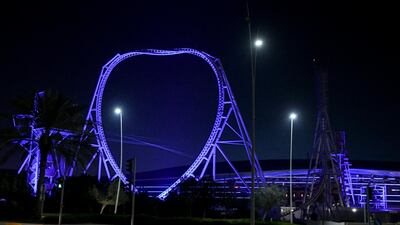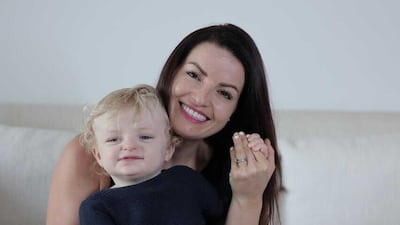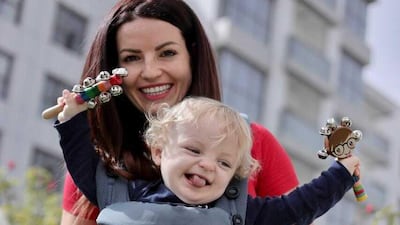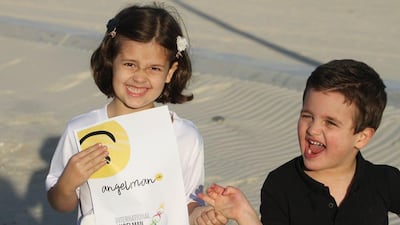Landmarks in the UAE turned blue on Monday night to shine a light on a disorder so rare that many doctors have never heard of it.
Dubai Frame, as well as several attractions on Yas Island in the capital, including Ferrari World, Warner Bros World Abu Dhabi and Clymb, lit up to mark International Angelman Day.
Angelman syndrome is a complex genetic disorder that primarily affects the nervous system and occurs in one in about 20,000 people.
It is associated with delayed development, problems with speech and balance, intellectual disability and sometimes seizures.
People with the syndrome often smile, laugh frequently, and have a generally sunny disposition.
There are more than 11 families with children who suffer from the condition in the UAE, according to Em Ray, who organised the event.
Her son, Sam, was 20 months-old when the condition was diagnosed.
She frequently campaigns on social media for greater understanding of the condition.
Sam, now five-and-a-half, has achieved many milestones doctors said he would never attain, such as walking on his own. He is now also toilet-trained during the day and confident walking on stairs and uneven surfaces.
"We have had two new families diagnosed recently," said Ms Ray, who is from the UK.
“The key reason of raising awareness like this, and raising it all over Dubai is not just educating other people.
“It is so that in the future, that next family whose child will be diagnosed is going to look on social media and they are going to find all the articles and then they can reach me, which is what they did recently.”
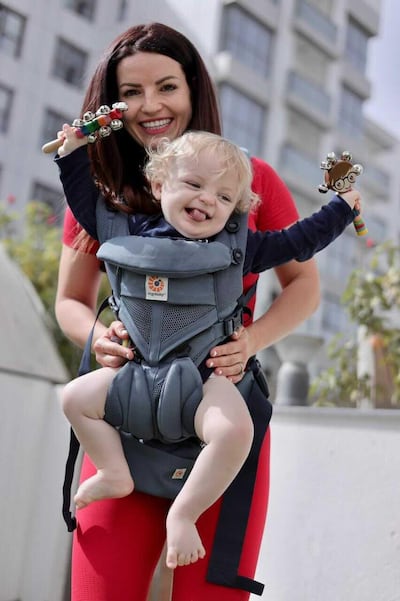
Rhian Adams is the mother of one of the children recently confirmed to have Angelman Syndrome.
Samson Oliver Turton, who is 14 months, had the condition diagnosed when he was 10 months old after a vaccination visit flagged potential issues.
“There were signs from about five months, when he wasn’t sitting up and wasn’t crawling, wasn’t reaching out and grabbing things,” said the 35-year-old from Wales.
“Then at eight months when we went to have vaccines the paediatrician was quite concerned by his low muscle tone and inability to roll or have tummy time.”
After two months of investigations, including a brain scan, a doctor ordered a full genetic blood screening, which revealed the diagnosis.
“That took about three to six weeks to come back and we had a phone call to come in to see them. In the initial meeting they said if we call you to come in, it’s probably something serious. So we knew it was bad news,” she said.
Even doctors she has subsequently seen in the UAE have never heard of the condition, she said.
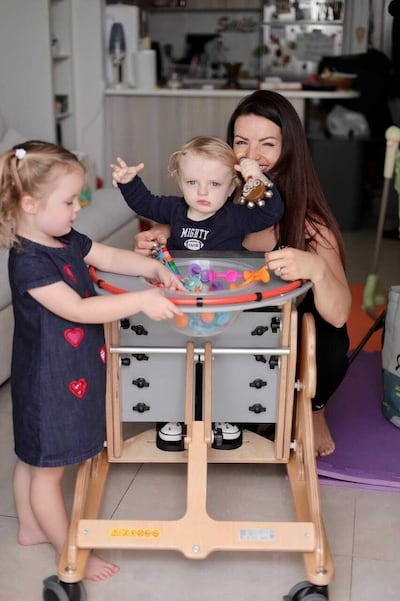
Ms Adams marked the day by taking part in a beach walk with her son and members of Help for Heroes, which was also attended by two other children with Angelman Syndrome.
Support from other Angelman families has been vital since the diagnosis, she said.
“Emily Ray called me two days after and I spoke to her for about 50 minutes.
"I came off the phone and I just felt everything is going to be OK. I literally had never heard of it and I didn't know of anyone.
“The condition brings its challenges. But I have faith and hope in terms of what his brain is capable of.”

